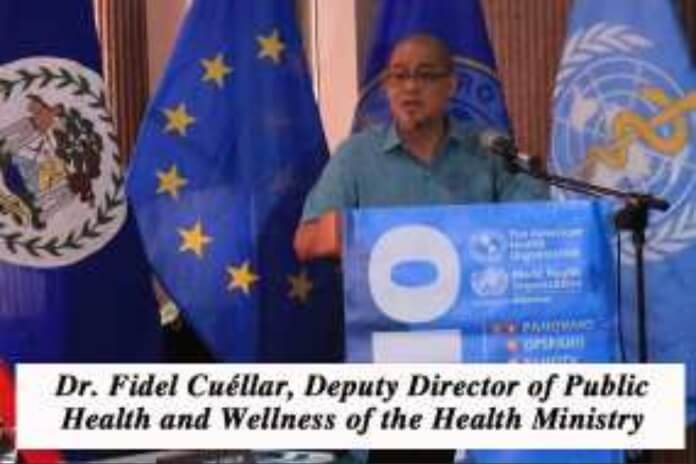BELIZE CITY, Tues. Apr. 26, 2022 — Around fifty of Belize’s primary care physicians and nurses will be attending a series of training workshops on the Mental Health Gap Action Programme Intervention Guide (mhGAP-IG) between now and June 2022 in an effort to improve the quality of mental health services available in the country. The workshops, made possible by the Ministry of Health and Wellness in partnership with the Pan American Health Organization/World Health Organization (PAHO/WHO) and with funding from the European Union (EU), are aimed at addressing the stigma and lack of public awareness surrounding mental health issues in the country as well as addressing the current shortage of psychiatrists and mental health care providers in Belize— especially in light of the increased demand for better mental health services.
According to a press release from the Ministry of Health, the program will enable all four health regions (Central, Southern, Northern, and Western) to integrate mental health services into their primary care, thus increasing access to mental health services across the country.
The Mental Health Gap Action Programme, created by the World Health Organization in 2008, was designed to improve primary care services for mental, neurological, and substance use (MNS) disorders in low and middle-income countries. Particularly, the programme focuses on depression, psychosis, suicidal ideation, behavioural disorders, and disorders due to alcohol and psychoactive substances.
“Successful scaling up [of mental health services] is the joint responsibility of governments, health professionals, civil society, communities, and families, with support from the international community. The essence of mhGAP is building partnerships for collective action,” stated the WHO.
The intervention guide, mhGAP-IG, provides non-specialists—including doctors, nurses, managers, planners, and other health workers—with the necessary tools and information needed to make adequate clinical decisions. In addition to promoting improved listening and communication skills, it will enable them to detect and treat common MNS disorders and to know when to make the proper referrals for specialized services.
“Belize has a population of about 410,000 people but only 16 psychiatric Belize’s primary caregivers attend mental health workshops nurse practitioners, five psychiatrists, and one psychotherapist,” stated Dr. Fidel Cuéllar, the Deputy Director of Public Health and Wellness of the Ministry of Health at the launch of the workshops. What that means, said the Director, is that mental health care is not readily available to the general population of Belize—a gap that the Ministry is attempting to close with this new program. Dr. Cuéllar also pointed out that as many as one in four persons has suffered or will suffer from a mental health condition such as anxiety or depression.
“The delivery of mental health services in primary care is cost-effective and efficient. Assuring person-centered mental health services that are integrated into primary care services helps achieve our collective goal of achieving universal health access and coverage,” noted Dr. Edwin Bolastig, the Health Systems and Services Advisor at PAHO/WHO.
Since the induction of the WHO Mental Health Gap Action Programme, over 100 countries have benefitted from it, with persons being treated for issues like depression, schizophrenia, and suicidal ideation even in places with limited resources.

